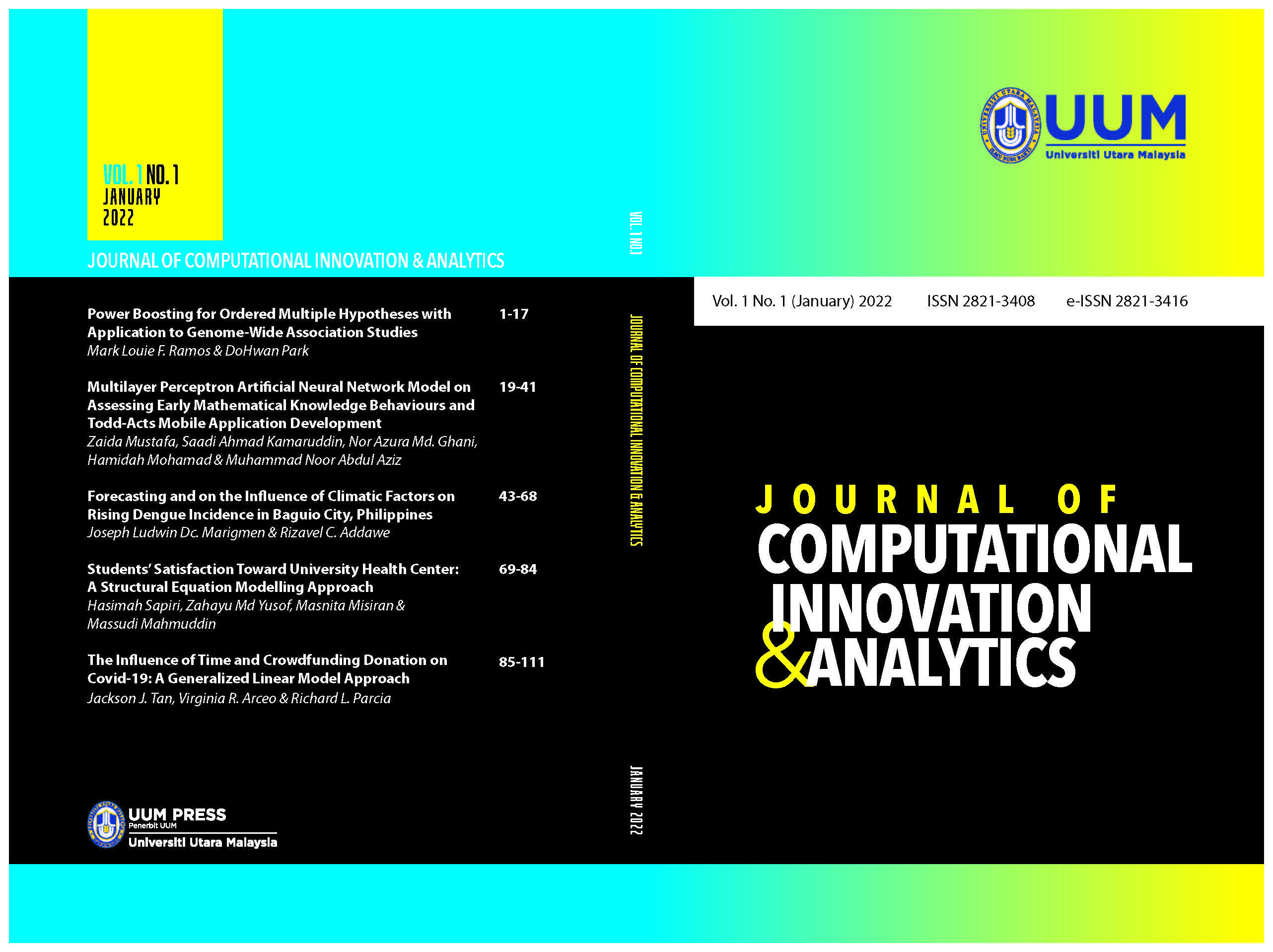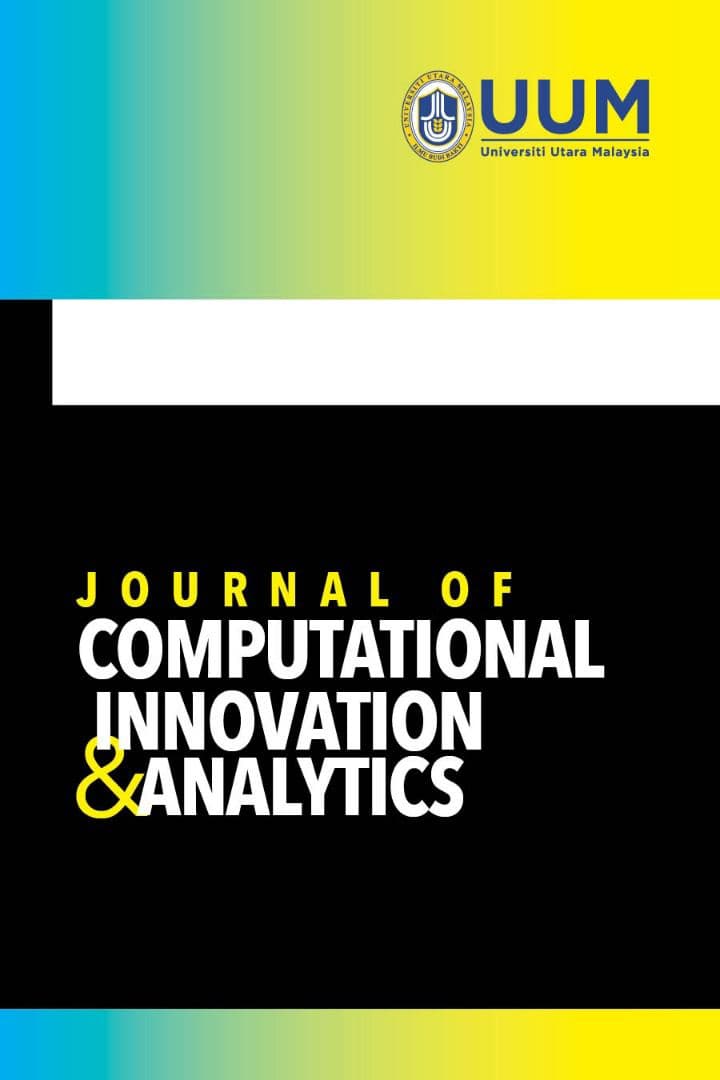POWER BOOSTING FOR ORDERED MULTIPLE HYPOTHESES WITH APPLICATION TO GENOME-WIDE ASSOCIATION STUDIES
DOI:
https://doi.org/10.32890/jcia2022.1.1.1Abstrak
A method for addressing the multiplicity problem is proposed in the setting where the hypotheses test sites may be arranged in some order based on a notion of proximity, such as SNPs of a chromosome in genetic association studies. It is shown that this method is able to control family-wise error rate in the weak sense and numerical evidence shows that this method controls false discovery rate in the strong sense under sparsity. The method is applied to some genome- wide association studies data with asthma and it is argued that this Power Boosting method may be combined with existing error- rate controlling methods in order to improve true positive rates at controllable and possibly negligible cost to the nominal level of error- rate control.











